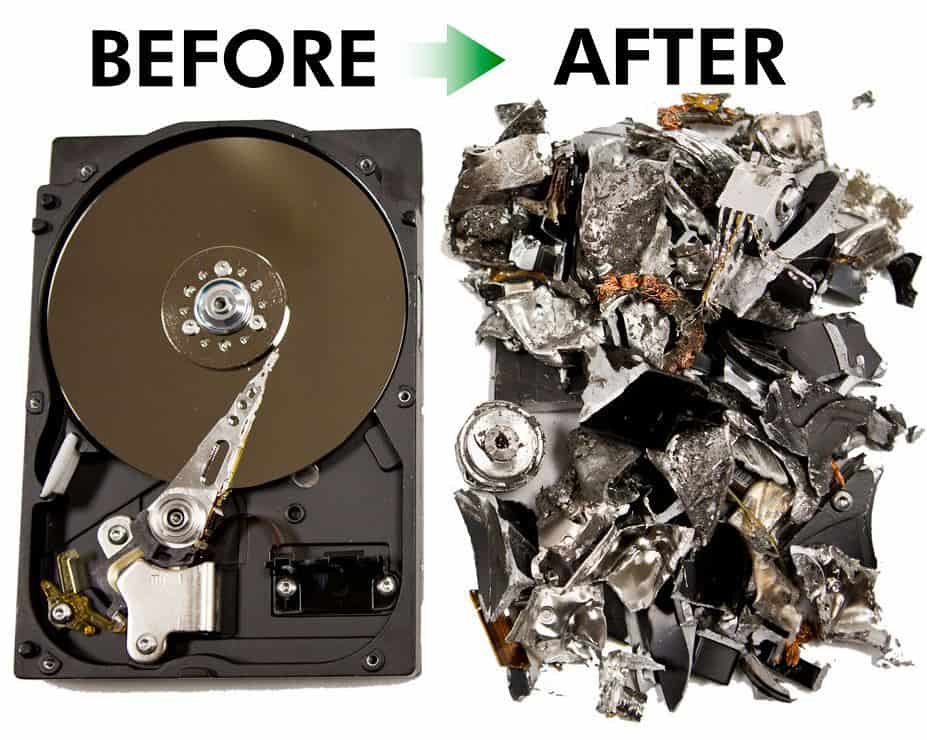Ideal Practices for Data Destruction to Fortify Your Cyber Security Structure
Wiki Article
The Necessary Nature of Data Devastation in Upholding Computer System Safety And Security Providers and Protecting Versus Unauthorized Access
In a period where data breaches and identification theft are significantly prevalent, the relevance of effective data devastation can not be overemphasized. Organizations needs to identify that the failing to correctly take care of delicate details postures not only lawful and financial dangers but additionally a possible erosion of client trust fund. Different methods, from information wiping to physical devastation, work as critical safeguards versus unapproved gain access to. Nevertheless, comprehending the ramifications of data damage practices and conformity with regulations elevates vital inquiries about the competence of present techniques and their lasting feasibility despite evolving threats.Value of Information Destruction
In an increasingly digital world, the significance of information damage can not be overemphasized. As organizations generate substantial amounts of sensitive details, the prospective effects of failing to properly take care of and get rid of of that data come to be progressively extreme. Data breaches, identity theft, and company reconnaissance present substantial hazards, emphasizing the necessity of efficient data destruction practices.
In addition, as innovation progresses, so too do the techniques whereby destructive actors look for to exploit delicate information. Organizations has to stay positive and vigilant in their data devastation techniques to safeguard against these developing dangers. By focusing on information devastation, business not only safeguard their possessions but additionally foster trust among clients and stakeholders, showing a dedication to responsible information monitoring and safety techniques.
Techniques of Effective Data Damage
To ensure the total and irreparable destruction of delicate information, companies can utilize a variety of reliable techniques customized to their specific needs. Among one of the most typical approaches is data cleaning, which involves using specialized software to overwrite existing data numerous times, making recuperation practically impossible. This is specifically useful for hard disk drives and solid-state drives, where typical deletion approaches are inadequate.An additional effective technique is degaussing, which utilizes solid electromagnetic fields to interrupt the magnetic domain names on storage media, rendering the information irretrievable. This method is especially suited for magnetic storage tools, such as tape drives and hard drives.
Physical devastation is additionally a viable option, involving the shredding, squashing, or incineration of storage gadgets. This approach guarantees that information can not be recovered, making it suitable for companies handling highly sensitive info.

Conformity With Information Defense Laws
Organizations must not just concentrate on efficient data destruction methods yet also make certain compliance with information security laws that govern how delicate info is taken care of and gotten rid of. Complying with these guidelines is important for safeguarding individual information and maintaining client trust. Rules such as the General Information Protection Policy (GDPR) why not try here in the European Union and the Health Insurance Transportability and Accountability Act (HIPAA) in the United States impose rigorous standards on information monitoring, which consist of demands for the secure disposal of delicate information.To attain compliance, organizations have to implement detailed information devastation policies that straighten with these legal structures. This consists of determining information that requires devastation, establishing procedures for secure methodsâEUR" such as shredding physical media or using software that fulfills sector requirements for information wipingâEUR" and maintaining detailed records of damage tasks. Routine audits ought to be performed to make certain adherence to these policies and to determine any kind of prospective locations for enhancement.
Failing to comply with information defense laws can lead to significant legal ramifications, including significant penalties and damages to an organization's track record. As a result, incorporating compliance into information devastation techniques is not only a legal obligation yet likewise an essential element of a durable info safety method.
Repercussions of Poor Data Handling
Poor information handling can cause serious effects that extend past immediate operational setbacks. Organizations might deal with significant economic losses as a result of data breaches, which often lead to pricey remediation initiatives, legal charges, and regulative penalties. These monetary implications can stress resources and prevent growth, inevitably affecting a company's bottom line.
In addition, poor data handling can badly damage an organization's track record. Stakeholders, clients, and partners may shed depend on in an entity that stops working to secure delicate information, leading to decreased customer commitment and possible loss of business possibilities. This disintegration of count on can take years to restore, if it can be brought back in all.
In addition, companies might face lawful implications arising from non-compliance with information protection guidelines. Such offenses might result in penalties and investigations, worsening the economic concern and more tainting the organization's image.
In the world of cybersecurity, insufficient data management techniques can produce vulnerabilities that make systems more susceptible to unauthorized gain access to and cyberattacks. Inevitably, these repercussions highlight the critical value of applying durable information taking care of treatments to guard delicate info and keep business integrity.
Best Practices for Secure Data Disposal


Firstly, information need to be identified according to its sensitivity. Sensitive details needs much more rigorous disposal methods, such as shredding physical papers and utilizing innovative software application for electronic information wiping. Utilizing licensed data destruction services makes certain compliance with industry guidelines and criteria.
Secondly, companies must implement a data disposal policy that mandates routine audits. This plan needs to describe the treatments for Discover More data retention and damage, making certain that obsolete information is gotten rid of promptly and safely. Training staff members on these procedures is necessary to promoting a culture of safety and security awareness.
Finally, maintaining comprehensive documents of disposed data enhances liability and gives a clear audit path. This documentation needs to consist of the kind of data ruined, the approach utilized, and the day best site of disposal.
Final Thought
To conclude, the necessary of effective information destruction appears in its duty in enhancing computer system security services and alleviating unauthorized gain access to threats. Taking on durable methods such as data wiping, degaussing, and physical damage, together with conformity with regulations like GDPR and HIPAA, is crucial for protecting delicate info. Overlooking appropriate data disposal methods can cause severe consequences, including information breaches and lawful consequences. Implementing ideal methods in secure information disposal eventually strengthens organizational stability and client trust fund.In an era where data violations and identity burglary are increasingly prevalent, the significance of efficient information damage can not be overstated. data destruction. Data breaches, identity theft, and corporate reconnaissance present considerable dangers, underscoring the requirement of efficient data damage practices
Conformity with regulations such as GDPR and HIPAA requireds that organizations carry out rigid data security steps, including the safe destruction of information at the end of its lifecycle.
By focusing on information destruction, business not only shield their possessions but additionally foster trust fund amongst stakeholders and clients, showing a commitment to accountable data administration and safety techniques.
Organizations need to not only focus on efficient data devastation methods yet also make sure compliance with information protection laws that control just how delicate details is taken care of and disposed of.
Report this wiki page